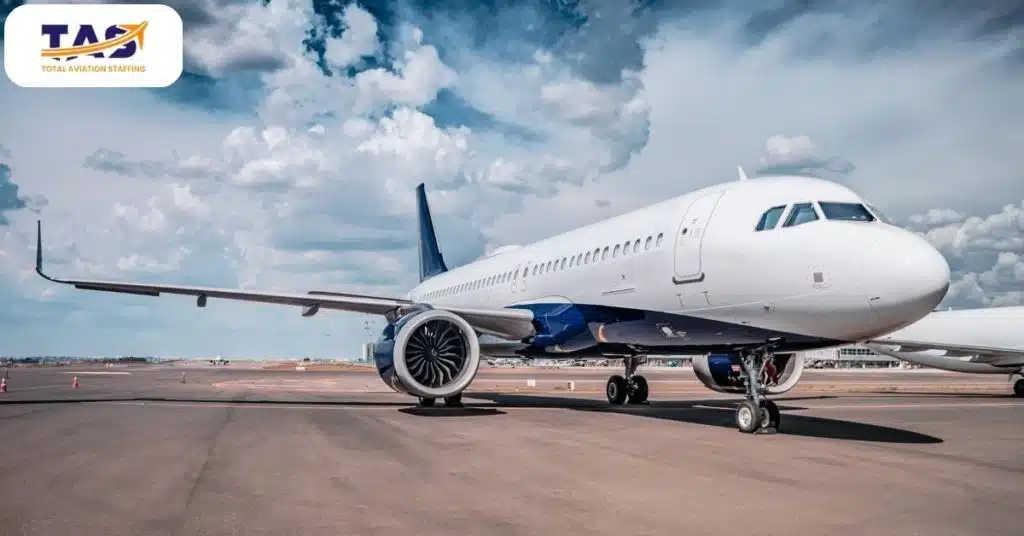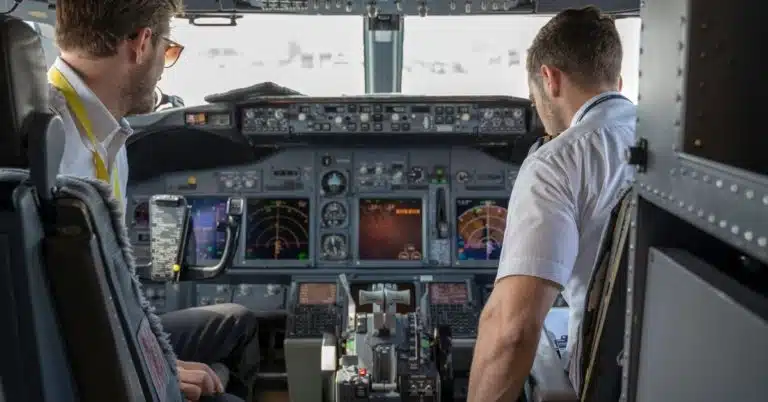7 Reasons to Become an Avionic Engineer

If you’re interested in working with cutting-edge technology and developing sophisticated aircraft systems, then consider a career as an avionic engineer. Avionics engineering is the application of electronics to aerospace and aviation, using specialized knowledge to design, build, maintain, and troubleshoot complex systems for the commercial, military, and general aviation industries. From navigation and communication systems to missiles and satellites, avionic engineers create the technology that makes modern air travel possible.
We hope this introduction sparked your interest in becoming an avionic engineer and that you’ll explore further all the exciting opportunities it can bring. Stay tuned for our upcoming blog to find out why choosing a career in avionics engineering is a great decision!
1. Passion for Aviation
For aviation enthusiasts who have an aptitude for engineering, there couldn’t be a more fulfilling career than an Avionics Engineer. It’s the perfect way to combine a passion for aviation with creativity and problem-solving abilities to make sure aviation systems operate at peak performance.
With technology advancing every day, there is no shortage of opportunities in this ever-evolving field to take on new and exciting challenges. Avionics Engineers use cutting-edge technology combined with their knowledge of aviation systems to help bring us closer to our goals of efficient and sustainable air travel.
There is no limit to the potential that could be unleashed by those who choose this pathway, as they are truly at the forefront of revolutionizing aviation.

2. Variety of Career Paths
Becoming an aviation engineer offers a variety of career paths to those interested in aviation. Avionics engineers can design and develop aviation hardware, power systems, navigation systems, and aircraft information systems.
With these skills, aviation engineers hold many roles such as flight instrumentation specialist, aeronautical electronics technician, or aviation software engineer. Depending on the individual’s passion and abilities, there are also opportunities to specialize in areas of aviation such as satellite communications, radar systems, or unmanned aerial vehicles.
With a vast array of exciting pathways available for aviation specialists, avionic engineering is a great profession for those looking to pursue a unique and fulfilling career.

3. Challenging and Fun Work
Becoming an aviation engineer is a fantastic opportunity to blend two of life’s greatest passions – aviation and engineering. As an avionic engineer, you will be challenged to combine technological knowledge with aviation background to create components that help pilots stay safe during flight.
This type of work is both rewarding and fun – engaging your mind and providing a daily challenge as well as stimulating learning opportunities. Projects focus on making sure aviation systems perform at their best, from assessing and understanding data analysis to developing the latest aviation technology.
You will gain invaluable experience along the way and have a deep sense of satisfaction knowing that your contributions are helping pilots all over the world.

4. Competitive Salary and Benefits
As an aviation avionic engineer, you may be surprised to learn of the competitive salary and benefits in addition to the exciting job prospects. Avionics engineers who are responsible for developing, testing, and maintaining aviation electrical systems typically receive comprehensive compensation packages that include competitive pay and attractive benefits such as 401K savings plans and health insurance.
In overall aviation, advances in aviation technology have led to an increased demand for highly skilled aviation professionals like avionic engineers to tackle the development of intricate electrical engineering projects. As electricity continues to be applied increasingly to aviation applications, especially with the rise of modern aircraft and the need for more powerful avionics systems, avionic engineers have excellent career prospects ahead of them. With the immense potential for growth, becoming an avionic engineer is sure to offer a comfortable financial future.

5. Opportunities for Travel
For aviation enthusiasts, becoming an avionic engineer provides the perfect opportunity to combine a passion for aviation and travel. Not only will an aviation engineering career provide exciting challenges and opportunities to work on cutting-edge aviation systems, but it can also open up international travel opportunities.
From working with airlines throughout the world or helping develop components for complicated aviation networks, travel opens up as an expected part of many aviation engineering roles. With the right certifications, avionic engineers can get assignments anywhere in the world where their services are required.
Those keen to explore countries beyond their native one should strongly consider pairing their technical expertise with their wanderlust spirit and opt to become an aviation engineer; with its endless opportunities for travel, no other profession offers such a combination of industry knowledge and globetrotting!

6. Exciting Future in Aviation
Avionic engineering offers a very exciting future for aviation professionals. Those who choose to pursue a career in this sector can look forward to developing and maintaining cutting-edge aviation technology, working with industry leaders, and modernizing existing aircraft systems. Plus, aviation engineers are often technical problem-solvers, making each project as unique and interesting as the last.
With aviation technologies advancing every day and new challenges to face within the aviation industry, avionic engineers can benefit from tremendous job security with continual opportunities for professional development. Furthermore, the industry holds many networking possibilities when meeting experienced individuals who create, install and maintain these systems.
As the aviation industry takes greater strides towards more efficient and reliable travel, the skills of an avionic engineer will be increasingly valued – making it an ideal choice for those seeking an exciting career in aviation.

7. Satisfying Career
Avionic engineering is an incredibly rewarding and satisfying career. Working in aviation requires a skilled individual who is able to develop, maintain and troubleshoot aircraft electrical systems and aviation instrumentation hardware. One of the top reasons for becoming an avionic engineer is the unique opportunity to constantly learn and stay up-to-date with new technological advancements in aviation.
Individuals in this field will have the chance to tackle difficult challenges, such as contributing to the development of electric aircraft or integrating advanced navigation systems into aviation models. As aviation technology evolves, so are the opportunities to become more innovative, and professionals that work in aviation can always stay ahead of current trends while gaining years of experience and knowledge.
Furthermore, if you are willing to open yourself up to potential job opportunities on a global scale, then becoming an avionic engineer may be the perfect choice for you.

In Conclusion
Becoming an avionic engineer is a highly rewarding and satisfying career choice that offers numerous benefits. With ample job security, the potential to travel, exciting challenges, and opportunities to work on cutting-edge aviation systems, avionic engineering can provide the perfect career path for those who love aviation and want to remain ahead of current trends in the field. So why not consider an aviation engineering career today? The sky’s the limit!
